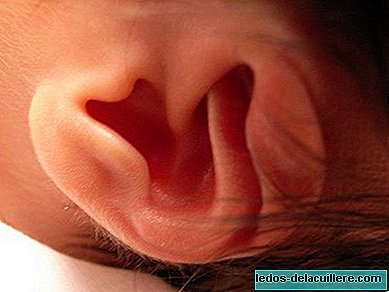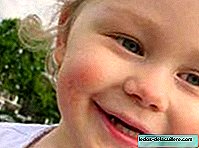
Thanks to medical advances, at the moment of birth all babies are subjected to auditory screening to rule out any possible hearing deficit. However, it may happen that the hearing problem appears after this initial test, whether due to infection, trauma or other causes. Therefore, parents should know the warning signs of possible hearing impairment
It is important to rule out that our child has a problem in hearing since, in the case of having it, its consequences are not limited to language and communication, but the rest of the areas, such as the other areas, such as as the social, motor or cognitive area, to a greater or lesser extent depending on the severity of the disorder.
An early detection of an alteration in how our child perceives the sounds around them can help them to reduce these limitations, since the sooner they are detected, the better the prognosis for a specific intervention. Therefore, we will now comment on some of the signs that can help us check whether or not we have a hearing problem.
Alarm signs
Generally, babies who have some type of hearing impairment are shown, during first six months of life, as very calm babies, that do not alter, startle or surprise any unexpected sound that lasts over time or are of great intensity. In the same way, they don't turn their heads or look for us with their eyes when we speak to them from a position far from their visual field; He only reacts when we face him.
Between the six and twelve months we can notice that the babble that could be emitted before become Screams. If we call him, does not respond to his name or vocalize to get attention of the people around him. It follows the absence of response to stimuli that are outside their visual field, to which we must also add that it is hard for him to understand colloquial expressions without a gesture of support (for example, "goodbye" or "no").
Between the twelve and eighteen hearing losses are a bit more evident, since doesn't say words with redoubled syllables (dad mom… ), neither names people or familiar objects for him, like some meals or his toys.
When the child is reaching the two years, if there is any problem receiving auditory stimuli, don't pay attention when we tell you a story. During the day to day, does not understand simple orders if they are not accompanied by gestures and does not perform two word phrases.
When the child is among the two and three years, all of the above is becoming increasingly evident (does not respond to simple orders, does not respond to his name, does not pay much attention, does not make multi-word phrases, does not answer questions, does not repeat phrases we say ...)
High risk indicators in the newborn
In addition to the alarm signs, which we can check from our home, there are a number of high risk indicators, which are done through a series of systematic screenings in the hospital, at least in the population at high risk of hearing impairment.
These indicators are, among others:
- History of hearing impairments in the family
- Infection of the mother during pregnancy with cytomegalovirus, rubella, syphilis, herpes or toxoplasmosis
- Craniofacial malformations of the newborn
- Birth weight less than 1,500 gr.
- Severe hyperbilirubinemia
The prognosis of children suffering from this sensory deficit is determined, to a large extent, by the speed with which the diagnosis is made and the treatment and rehabilitation that best suits the child is established. He early diagnosis is very important since the capacity of the human beings to acquire the language is superior during the first years of life and little by little it diminishes with the age.
This is due to the great cerebral plasticity that makes possible the recovery of lesions in brain areas, in the case of hearing impairment, mainly responsible for language.
Taking into account this great initial plasticity and the importance of language for the integral development of the child, every effort is made to detect as soon as you are warning signs of possible hearing impairment.












